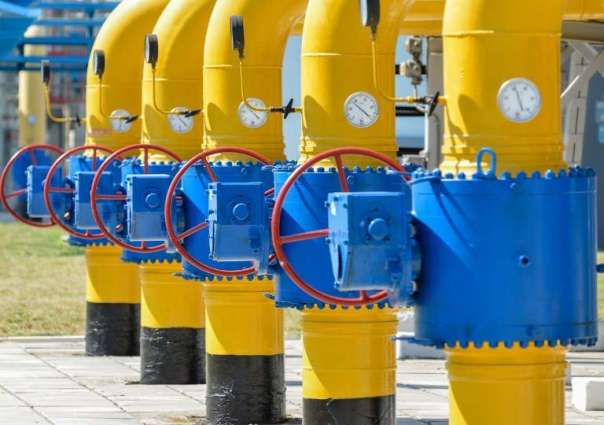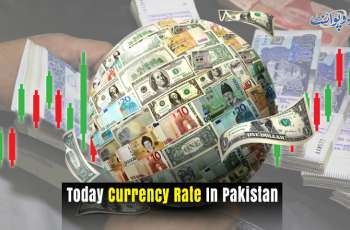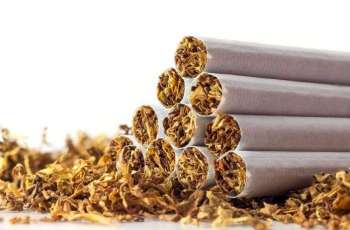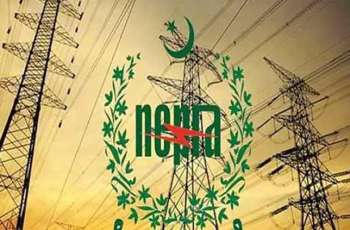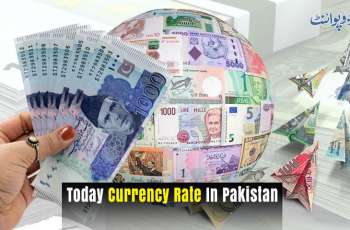Russia, the European Union and Ukraine will hold gas talks on January 21 in Brussels
MOSCOW (Pakistan Point News / Sputnik - 21st January, 2019) Russia, the European Union and Ukraine will hold gas talks on January 21 in Brussels.
Trilateral gas talks were initiated by Russian President Vladimir Putin.
In April 2014, Putin sent a letter to the leaders of European countries, in which he indicated that in recent years, Russia had subsidized Ukraine's economy for $35.4 billion by offering slashed natural gas prices. Putin thus proposed to immediately hold ministerial consultations to develop concerted actions to stabilize Ukraine's economy and ensure the supply of Russian gas and its transit in strict accordance with the contracts.
Ukraine's gas debt began to form at the end of November 2013, when a political crisis escalated in the country, and reached $3.5 billion by the end of April 2014.
Several rounds of trilateral negotiations were held in the Russia-Ukraine-EU format since May 26, 2014. They did not produce any results, and on June 16, Russia's Gazprom put Ukraine on gas prepayment system. The stumbling block was the price of Russian fuel.
Kiev insisted that Russian gas prices had to sharply decline, refusing otherwise to pay the debt, which at that time reached $4.5 billion. Russia was ready to give a discount on natural gas, but Ukraine was not satisfied with either the discount amount or the mechanism for providing it. After that, the Russian side stated that it would be ready to continue negotiations only after Ukraine paid off its debts.
For its part, Ukraine, represented by Energy Minister Yuri Prodan, stated that it was ready to pay off debts only after reaching a package agreement with Russia, in which the gas prices would be agreed upon.
After the introduction of prepayment system, Gazprom was practically sending Ukraine only transit volumes of gas.
On September 26, 2014, gas negotiations were resumed.
On October 31, with the mediation of the European Commission (EC), the two countries agreed on the so-called "winter package" of gas supplies from Russia to Ukraine.
The plan entailed the resumption of Russian gas supplies to Ukraine and ensuring smooth transit to Europe in winter. It also provided for Ukraine repaying Russia $3.1 billion out of $5.3 billion debt by the end of the year and for purchase of additional volumes of gas from Gazprom for the winter on a prepaid basis.
Moscow gave Kiev a $100 discount per 1,000 cubic meters (35,315 cubic feet) of gas to the original contract price by lowering export duties. An important element of the winter package was the fact that the contract for the gas supply from Russia to Ukraine, which was concluded in 2009 for the period until 2019, remained valid. The winter gas plan was intended to be in force until March 31, 2015.
Another round of regular trilateral talks between Russia, the EU and Ukraine on gas issues took place in Brussels on March 20, 2015.
The parties agreed that Russia would consider the possibility of granting Ukraine discounts on gas quarterly, that Ukraine must purchase sufficient volumes of gas to fill its underground gas storage facilities and ensure reliable gas transit to the EU, and that the EC had to make efforts to assist Ukraine in finding financial support for the purchase of gas.
Since April 1, 2015, Russia has been supplying gas to Ukraine on a take-or-pay basis.
The Russian government has again decided to give Ukraine a discount on gas in the amount of $100 per 1,000 cubic meters. Also, Gazprom and Ukrainian gas company Naftogaz signed an additional agreement on gas supplies to Ukraine in the second quarter of that year, similar to the one in the winter package. It did not imply fines for gas shortage in the second quarter under the take-or-pay rule.
On June 30, 2015, a regular round of tripartite talks was held in Vienna. On June 29, Gazprom sent Naftogaz an offer to sign a supplementary agreement to the contract, existing from 2009, for the third quarter of 2015. The price of Russian gas for Ukraine during this period, including a discount of $40, was $247.17 per 1,000 cubic meters. This was the same price that Ukraine paid Russia for gas in the second quarter.
Negotiations ended inconclusively. Ukraine did not accept the discount amount for the third quarter, and decided to stop purchasing gas from Russia. Also, Kiev could not guarantee the EC the targeted use of the possible financial assistance in the amount of $2.8 billion, which were supposed to be allocated for gas injection into Ukrainian underground gas storage facilities for the winter.
Bilateral talks between Russian Energy Minister Alexander Novak and Vice-President of the European Commission in charge of Energy Union Maros Sefcovic were held in Vienna on September 11. Gazprom CEO Alexey Miller also took part in the meeting. Following the talks, the parties agreed on the key provisions of the new winter package: Russia will provide a discount for two quarters straight and the EC will organize financing for gas injection into Ukrainian underground gas storage facilities.
On September 25, the representatives of Russia, Ukraine and the European Commission signed the winter gas package valid from October 1, 2015, to the end of March 2016. The protocol provided for Ukraine purchasing 2 billion cubic meters of gas from Russia in October to fill the underground storage, paying with credit $500 million, which were attracted with the help of the EC.
After Kiev bought the mandatory volume of gas envisaged by the agreement, it stopped purchasing gas from Russia starting from November 25, 2015.
The total volume of Russian gas purchases by Ukraine in 2015 amounted to 6.1 billion cubic meters, compared with 14.5 billion cubic meters in 2014.
Despite the fact that in the first quarter of 2016 the Russian government once again provided Ukraine with a discount on gas, the latter refused to purchase gas from Gazprom.
In June 2016, Naftogaz asked Gazprom to resume gas supplies to Ukraine for the period from the second half of 2016 to April 2017. Naftogaz offered Gazprom to sign an amendment to the gas supply contract for the next three quarters and said that it considered the "hub minus transportation" price to be economically sound.
Naftogaz also offered Gazprom to cancel the take-or-pay condition and asked to guarantee that the prepayment would not be considered as debt payments and would not go toward gas for the self-proclaimed Donetsk People's Republic and Luhansk People's Republic.
Gazprom's Miller stated that the company will not sign any addendums to the contract. He added that the current agreement did not require any additions to resume gas supplies to Ukraine and it was enough just to make a prepayment.
On December 9, 2016, Russia, Ukraine and the EC held trilateral talks, during which the Ukrainian side expressed readiness to buy from 1.5 to 4 billion cubic meters of gas from Russia that winter. Russia, in turn, confirmed its readiness to ensure gas supplies to the EU and Ukraine. However, the parties did not agree on the resumption of gas deliveries to Ukraine, since Kiev insisted on signing an additional agreement to the contract with Gazprom, which would have lifted the take-or-pay condition.
The trilateral talks were not held after that. Ukraine stopped purchasing gas from Russia in November 2015, and instead was filling its underground storage with gas from the reverse supply from the EU states, such as Slovakia, Hungary and Poland.
The current contract for the transit of Russian gas through Ukraine expires at the end of 2019.
In March 2018, the EC expressed its willingness to resume the trilateral talks between Brussels, Moscow and Kiev to resolve the gas dispute between Naftogaz and Gazprom.
On July 17, the tripartite talks took place in Berlin. Novak, Sefcovic, Miller, as well as Ukrainian Foreign Minister Pavlo Klimkin and Naftogaz CEO Andriy Kobolev took part in them. The talks were held for the first time after the Stockholm arbitration had issued a ruling regarding the dispute between Gazprom and Naftogaz.
The Stockholm arbitration ruled that the Ukrainian state-owned company should pay the Russian concern more than $2 billion. Nevertheless, this was followed by a second decision, when the Stockholm arbitration partially satisfied Naftogaz claims over what it said was the failure of Russian energy company to supply agreed volumes of gas for transit, ordering Gazprom to pay $4.63 billion to the Ukrainian firm. Thus, taking into account the amount of money previously awarded to Gazprom, the mutual offset of liabilities resulted in Gazprom's obligation to pay $2.56 billion. The Russian concern appealed this decision, announcing the termination of contracts with Naftogaz.
At the end of May 2018, Kiev announced the beginning of the enforced recovery of $2.6 billion from Gazprom to implement the ruling of the Stockholm arbitration court, and tried to freeze Gazprom's assets in the Nord Stream AG and Nord Stream 2 AG companies.
On June 13, the Svea Court of Appeal upheld Gazprom's request and ordered the suspension of the execution of the Stockholm arbitration court's ruling of February 28, 2018. Naftogaz tried to reverse this decision, but could not convince the judges.
In 2018, Naftogaz initiated a new trial, in which the company was demanding that Gazprom revised gas transit tariffs in 2018-2019 and compensated the "arrears" of about $11.6 billion.
Novak said that Russia was ready to extend the existing gas transit contract between Gazprom and Naftogaz, and was also ready to consider proposals for a new one, but added that all disputes in Russia-Ukraine relations needed to be settled before the start of a new phase of relations.
The EC wants to maintain the transit of Russian gas through Ukraine to the EU in the long term.
Kiev has repeatedly stated that it also wanted to remain a transit country for Russian gas supplies to Europe. In this regard, Ukraine is firmly against the laying of new gas pipelines bypassing its territory. Gazprom has repeatedly expressed its willingness to preserve gas transit through Ukraine after 2019, if Kiev demonstrates the economic viability of the contract. Gazprom CEO estimated the possible volumes at 10-15 billion cubic meters per year.
The trilateral meeting of Russia, Ukraine and the European Commission on gas transit was planned for October, but never took place.
